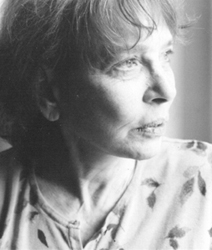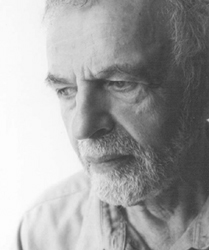ALAN v31n1 - 'A Sea of Stories': 2003 ALAN Award Winners, Norma Fox Mazer and Harry Mazer
Lori Atkins Goodson
“A Sea of Stories”
A Conversation with 2003 ALAN Award Winners Norma Fox Mazer and Harry Mazer


Since 1974 the ALAN Award has recognized outstanding contributions to adolescent literature by a publisher, author, librarian, scholar, editor, or anyone whose gift to the ALAN community calls out for recognition. For 2003 the ALAN Award co-winners are wife and husband, Norma Fox Mazer and Harry Mazer. Together or individually, the Mazers have published well over 50 noteworthy titles, mostly for young people. Lori Atkins Goodson spoke with the co-winners (who chose to answer separately) by email:
Many young people who have said, “I’ve never read a book I liked” changed their attitudes about reading when they read their first book by Norma Fox Mazer or Harry Mazer. Why do you think that is?
Norma: I don’t know. I’m very glad about it, though. Actually, I think boys respond to Harry’s books on one level because he’s so in touch with the boy in himself and is able to put that out in a story. Okay, maybe the same can be said of the girl in me.
Harry: I write because I’m excited abut something, a feeling or an idea about things that I’m trying to express. I write about troubled characters trying to find their way in a world they barely know. I write survival stories. In my lexicon, what story is not a survival story? Those are the stories that, once they have engaged the reader, can’t easily be put aside.
Your collective well of good stories never seems to go dry. How do you explain that?
Norma: Luck? Work? Genetics? All of the above?
Harry: We live, all of us, in a sea of stories. Stories we’re being told. Stories we tell ourselves. Every day - so many moving, touching, god-awful stories. Norma and I toss stories back and forth all the time, at the table, out on the street, in bed at night. Is this one for Norma? For me? For the two of us? We live in those stories. To live without stories, for us, is not to be alive.
Does censorship of YA lit continue to be a problem or is the situation improving?
Norma: Improving? I doubt it. Without being pessimistic, I think there will always be that core of people who long to press us all into their own small, confined world, and there will always be those of us who resist.
Harry: The censors are always out there. I don’t know that they will ever go away or even should. It’s good to know that there are people who take books so seriously they want to burn them. Resisting censorship is part of the territory for all book lovers, be they publishers, writers, parents, teachers or librarians. We need to stand our ground. There are more of us than there are of them.
You have written roughly 60 books separately and three or four together. How would you characterize the difference between writing together and writing separately?
Norma: When we’re writing together, I can’t get as lost in the created world as when I’m alone. The dreaming is done more efficiently, if that’s not a completely impossible and oxymoronic idea. So that’s a loss. But to balance it, there’s the fun of working together, although when we were writing our first book together, we snapped and bickered and disagreed a whole lot, and I was exasperated enough at the end to tell at least half a dozen people, “I will never write a book with that man again!” Ten years later, when our second collaboration appeared, those half dozen remembered exactly what I’d said.
Harry: Writing for me is a very mixed experience. I love the idea of the story. It’s there, bubbling in my head. I love the voice of a character, but then language fails me. The words don’t flow easily. I resist writing the words. Are they right? Are they good enough? Rub it out, erase. Start again. Language ensnares me. The words flow or they don’t flow. I don’t write enough. I write too much. I can’t believe I’ll ever get the whole thing down on paper. I get it done, but it’s not easy.
When I write with Norma, little of this happens. The process is different. We talk through the book, the characters, even some of the scenes. Then I write the draft and Norma revises it. The best part is when we sit down together to revise again. Sometimes, as it does when I’m working alone, the words are roiling around in my head, and Norma has to encourage me. A little slap on the back, an elbow, and the dam breaks, and I spit out the words, come what may, and she writes them down. The work gets done without the blocks, the hesitations and doubts. In a word, working alone is hell. Collaboration is a joy.
Past ALAN Award Recipients 1974 Stephen Tchudi & G. Robert Carlsen 1975 Margaret Edwards 1976 Margaret McElderry & M. Jerry Weiss 1977 Marguerite Archer 1978 Mary Sucher 1979 Gerri LaRocque 1980 Dwight Burton 1981 Sheila Schwartz 1982 Robert Cormier 1983 Ken Donelson 1984 Louise Rosenblatt 1985 Sue Ellen Bridgers 1986 Madeleine L’Engle 1987 Katherine Paterson & Allene Pace Nilsen 1988 Ted Hipple 1989 Cynthia Voigt 1990 Richard Peck 1991 Gary Paulsen 1992 Don Gallo 1993 Chris Crutcher 1994 Walter Dean Myers 1995 Robert C. Small, Jr 1996 Bill Morris 1997 Mildred Taylor 1998 S.E. Hinton 1999 Robert Lipsyte 2000 M.E. Kerr 2001 Patty Campbell 2002 Paul Zindel 2003 Norma Fox Mazer; Harry Mazer (co-winners)